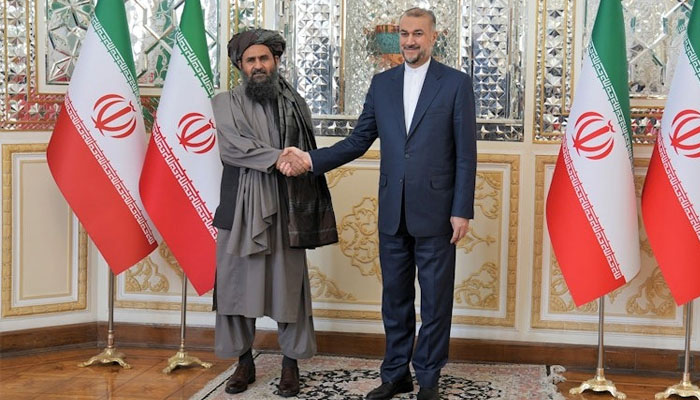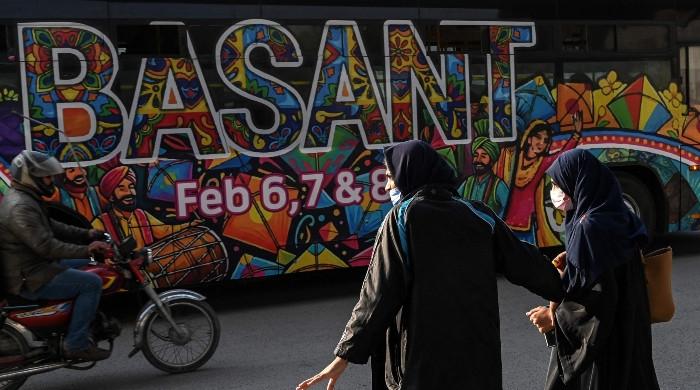Recognising Taliban as rulers of Afghanistan — III
Isolating Taliban benefits neither region nor world as recognition might offer way forward, unlocking Afghanistan’s potential as economic corridor
November 27, 2024

Tehran has cultivated good relations with successive governments as well as almost all major warring factions in Afghanistan. However, due to multiple factors, taking the lead in recognising the Taliban as the legitimate rulers of Afghanistan seems impossible for Iran.
One of the most important factors is the security threat posed by terrorists who infiltrate from Afghan-Iran border areas or incite extremists in other countries to attack Iran.
The suicide attack at the tomb of US-assassinated Iranian General Qassem Soleimani is a stark reminder of how Daesh-Khorasan Province (KP) can unleash terror in Iran. The attack on January 3, 2024, struck in Kerman when thousands of devotees were gathered to observe the fourth anniversary of the martyrdom of the Al-Quds Force commander Soleimani.
The attack left 91 people martyred and 284 injured, including women and children. Iran's Ministry of Intelligence claimed one of the terrorists was a Tajik national.
Earlier, Daesh-KP had targeted the sacred Shah-e-Cheragh Shrine twice, martyring 15 people martyred and wounding 43. The shrine complex in Shiraz houses the tombs of Ahmad and Muhammad, sons of Imam Musa al-Kazim and brothers of Imam Ali Reza. The attackers in both incidents were Daesh-KP-linked terrorists from Tajikistan.
The Daesh has also attacked Iran’s parliament and the mausoleum of the Islamic Republic’s founder, Ayatollah Ruhollah Khomeini.
However, it is alarming that Daesh-KP opted to use Tajik militants not only in Moscow but also in Kerman and Shiraz.
Unlike Russia, Iran is home to the largest population of Afghan migrants. Since the Taliban takeover of Kabul, the number of refugees has exceeded six million (7% of Iran’s total population), including a significant number of Tajiks.
For Iran, terrorism is not the only reason to be alarmed about Afghanistan becoming a hotbed of militants.
The transformation of Afghanistan into a purely Pashtun identity is another eye-opener for Tehran. Historically, a large part of present-day Afghanistan was once ruled by Persia. Consequently, both Pashto and Persian are official languages.
According to Britannica, "More than a fifth of the population speaks Pashto, the language of Pashtuns, while about half speak some dialect of Persian."
Attempts to marginalise the Persian language equate to erasing Persian culture and traditions that have prevailed across Afghanistan for centuries.
Border clashes are another issue.
The United Nations has documented at least 80 border incidents: 59 on the Afghan-Pakistan border, 16 on the Afghan-Iranian border, three on the Afghan-Tajik border, and one on the Afghan-Uzbek border.
Nevertheless, there has been some positive developments in Afghan-Iran relations. Both countries have amicably resolved disputes over the transboundary Helmand River.
Most importantly, the official trade volume between the two countries has exceeded $4 billion annually. Afghanistan exports minerals, raisins, sesame, and other materials, while importing petroleum products, cement, and other raw materials.
According to the spokesman for Afghanistan’s Ministry of Industry and Commerce, Akhundzada Abul Salam Jawad, "Trade between Afghanistan and Iran in the first nine months of 2024 amounted to $2.194 billion, with $38 million in exports and $2.156 billion in imports."
Could this trade justify recognising the Taliban as Afghanistan’s legitimate rulers?
Indications are that Tehran would avoid being labelled part of "rogue regimes" unless regional powers or the international community take the lead.
What role will Trump-led US admin play?
President-elect Donald Trump once considered courting the Taliban leadership at Camp David. However, he called off those peace talks after a US soldier was among 12 killed in a car explosion.
Since that September 2019 incident, both the Taliban and the Washington have engaged extensively. The Doha Accord and the subsequent withdrawal of US forces from Afghanistan underscore these engagements.
From invasion to withdrawal, the US kept shifting its goals. However, on August 16, 2021, President Biden articulated a policy statement that could lay the foundation for Taliban recognition.
"Our mission in Afghanistan was never supposed to have been nation-building. It was never supposed to be creating a unified, centralised democracy. Our only vital national interest in Afghanistan remains today what it has always been: preventing a terrorist attack on American soil."
Since the Taliban took over Kabul, no major terrorist incident has occurred on American soil. Yet, as Pakistani diplomat Asif Durrani suggests, such incidents may recur if militancy in Afghanistan remains unchecked.
Will President-elect Trump risk such an outcome or encourage the Taliban to engage in constructive dialogue to ensure regional and global security?
He must consider that if the United States does not lead in recognising the Taliban, regional countries may embrace them out of necessity, given their compromised security.
United Nations expresses dismay
The United Nations has expressed dismay over restrictions on women and girls in Afghanistan. However, the Taliban remain steadfast in rejecting external demands.
The Taliban argue that mutual interests should take precedence over external criticism of their governance system.
Afghan Foreign Minister Mawlawi Amir Muttaqi has stated: "The Islamic Emirate of Afghanistan respects the interests, choices, governance structures, and development models of others. In turn, it expects others to respect Afghanistan’s interests, governance, and development choices."
Isolating the Taliban benefits neither the region nor the world. The US has neither the will nor the justification to topple the Taliban regime, given the lack of a viable alternative to govern Afghanistan.
Recognition might offer a pathway forward, obliging the Taliban to ensure regional security. It could also unlock Afghanistan’s potential as an economic corridor.
For such a bargain, the Taliban must guarantee that no one operating from Afghanistan "on their behalf" or independently will attack another homeland.
The author is Controller News at Geo News. He posts on X at @NasimHaider2 and can be reached at [email protected]
Disclaimer: The viewpoints expressed in this piece are the writer's own and don't necessarily reflect Geo.tv's editorial policy.











